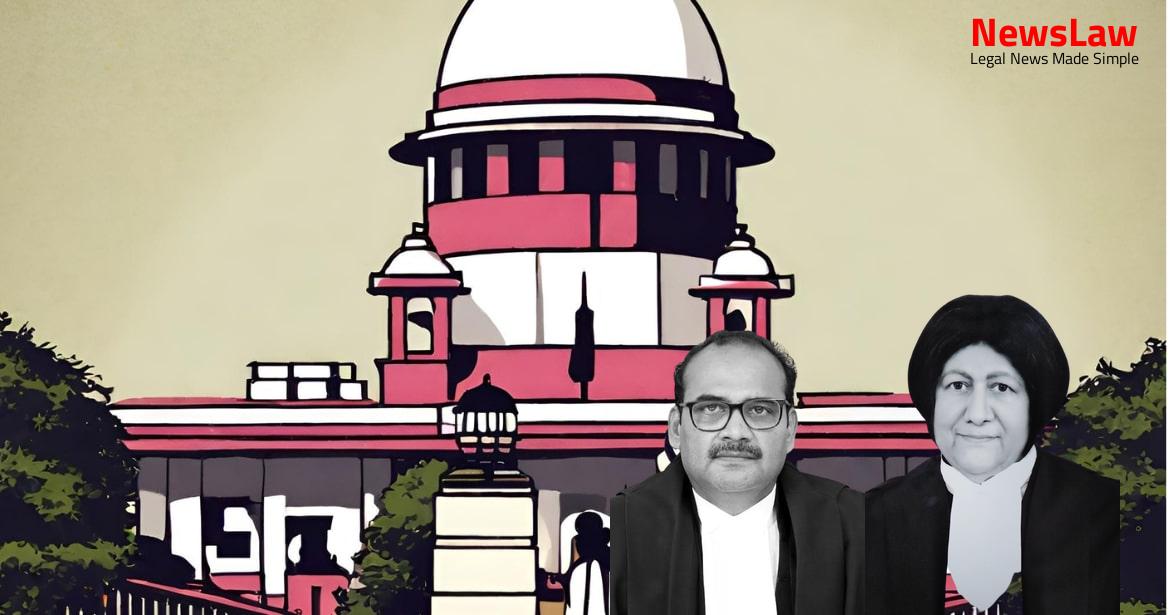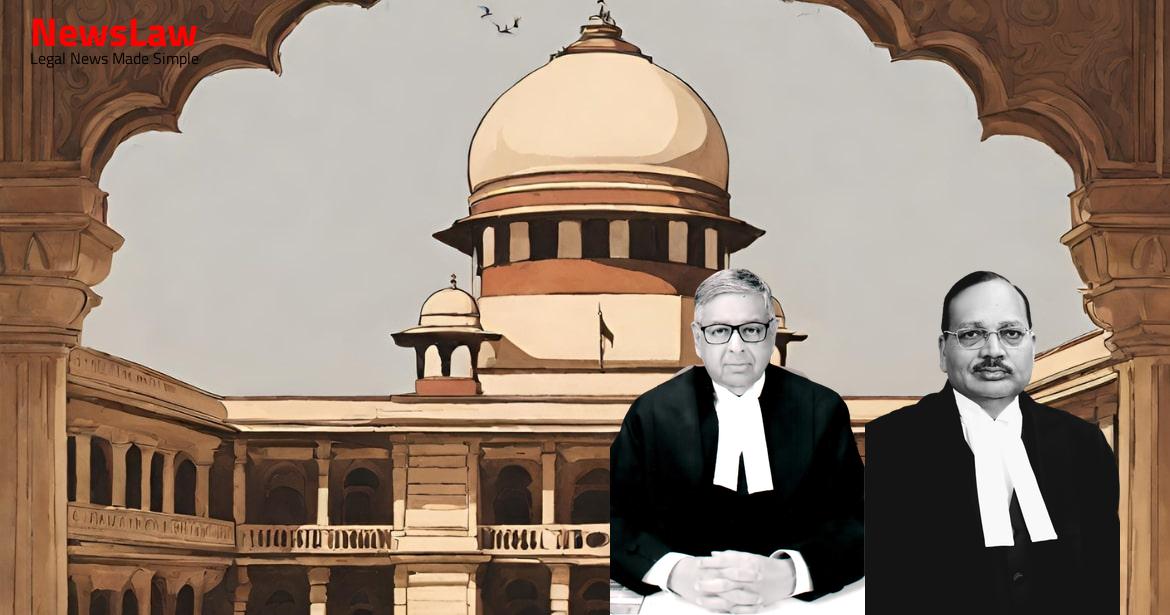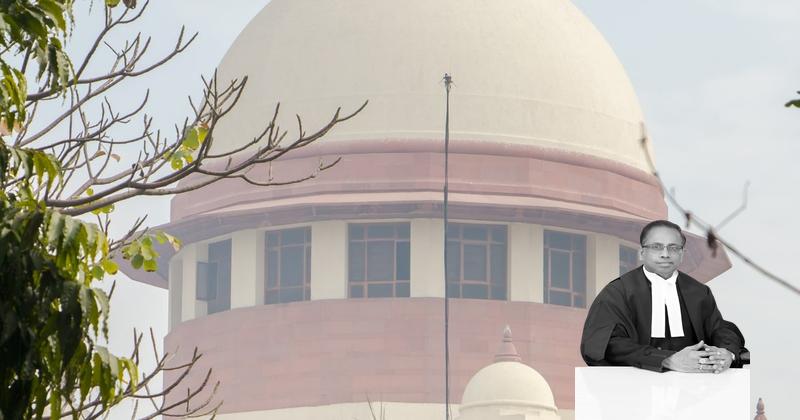Delve into a comprehensive legal analysis of search and seizure procedures under the NDPS Act by a recent court judgment. The case involved detailed scrutiny of the compliance with the law, especially pertaining to the authority of officers, evidence handling, and the implications for drug-related offenses. Discover the significance of the court’s analysis in upholding justice and maintaining legal standards.
Facts
- The High Court was unimpressed with the pleas raised by the accused/appellant and concurred with the Trial Court’s findings.
- The High Court considered the case as a chance recovery on a public road, governed by Section 43 of the NDPS Act.
- The High Court affirmed the conviction and sentence imposed by the Trial Court under Sections 8 & 21 of the NDPS Act.
- The High Court reduced the default sentence from two years to one year but upheld the main sentence of 10 years’ rigorous imprisonment and a fine of Rs. 1,00,000/-.
- Upon review, it was found that the appellant had already served the 10-year sentence and was released on interim bail after depositing the fine.
- The appellant’s release was due to having already served the main sentence and depositing the fine amount.
- The appellant’s senior counsel argued the lack of independent witnesses in the search and seizure proceedings conducted by S.I. Pranveer Singh.
- The Trial Court noted the superficial nature of the search but relied on the evidence of police personnel as departmental witnesses.
- The Trial Court convicted the accused under Sections 8 & 21 of the NDPS Act and imposed a 10-year rigorous imprisonment sentence along with a fine.
- The appellant challenged the authority of S.I. Pranveer Singh to conduct the search and seizure, as he was not the Station In-charge.
- The incident took place on a public road leading from Bhawani Mandi to Sunel.
- Accused Kallu Khan was apprehended and questioned by the police party.
- Constable Preetam Singh (P.W.1) reported that an independent witness could not be found immediately for the search.
- S.I. Pranveer Singh (P.W.6) ordered Constable Preetam Singh (P.W.1) to arrange an independent witness for the search of accused Kallu Khan and the motorcycle he was riding.
- Accused Kallu Khan was found riding an unnumbered motorcycle on the date of the incident.
- Kallu Khan attempted to flee upon seeing the police patrolling vehicle.
- The substance found during the search weighed 900gms, with two samples marked as ‘A’ and ‘B’.
- The police patrolling team included S.I. Pranveer Singh (P.W.6), Constables Preetam Singh (P.W.1), Sardar Singh (P.W.2), and Rajendra Prasad (P.W.8).
- A polythene bag containing a brown substance resembling smack was discovered beneath the seat of the motorcycle during the search.
- Accused Kallu Khan consented to be searched by the S.H.O after being informed under Section 50 of the NDPS Act.
- The prosecution was deemed to have proven its case beyond a reasonable doubt based on the evidence provided.
- Accused Kallu Khan did not provide satisfactory replies during interrogation and denied the charges, opting for a trial based on the defense of false implication.
- S.I. Pranveer Singh (P.W.6) obtained consent from Constable Sardar Singh (P.W.2) and Constable Rajendra Prasad (P.W.8) to be witnesses for the search of the vehicle.
Also Read: Analysis of Financial Statements as Acknowledgment in Limitation Act Case
Arguments
- The appellant argues that Section 43 of the NDPS Act would apply in the commission of the offense.
- Reliance is placed on various judgments to support the contention that lack of independent witnesses does not necessarily mean the accused was falsely implicated.
- It is highlighted that the contraband article was not produced in court as per Section 43 of the NDPS Act, and the authorized person conducted the search and seizure.
- The appellant argues that the search and seizure were conducted by an unauthorized officer with police witnesses, and the production of the contraband article in court was not necessary.
- The State argues that since the recovery was from the vehicle used in the offense, the compliance with Section 50 of the NDPS Act is not mandatory.
- Reliance is placed on specific judgments to support the State’s argument on the recovery from the vehicle.
- The prosecution’s failure to prove the case beyond reasonable doubt and the lack of following the procedure under Section 50(1) of the NDPS Act are highlighted.
- It is argued that the ownership of the vehicle is not of the accused, and the link of the vehicle to the offense is missing.
- The danger of the seized contraband re-entering the system due to improper handling and disposal is emphasized.
- The appellant contends that conviction based solely on police witnesses without independent witnesses is not fatal.
- Learned senior counsel representing the appellant was unable to show any deficiency in following the procedure or perversity to the findings recorded by the Trial Court, affirmed by the High Court.
- Guidance may be taken from the judgments of this Court in S. K. Raju (supra) and S.K. Sakkar (supra).
- The recovery made by Pranveer Singh (PW6) cannot be doubted in the facts of this case.
Also Read: Landmark Legal Analysis in Conviction Appeal Case
Analysis
- Compliance of Section 50 of NDPS Act not applicable as no contraband was recovered from the accused’s person
- Contradictions in testimonies of prosecution witnesses highlighted
- Judgments of previous cases like Vijaysinh, Surinder Kumar, and Baljinder Singh cited to support non-compliance argument
- Seizure of contraband from the motor cycle during a chance recovery on a public road
- Failure to show any perversity or illegality in the findings recorded by the two courts
- Argument about non-production of contraband in court for benefit of doubt discussed
- Ownership of the motor cycle not relevant as seizure of it is established beyond reasonable doubt
- Seizure of contraband from the motor cycle driven by the accused during a search at a public place
- Interference under Article 136 of the Constitution is only allowable in cases of gross error in lower court judgments.
- Interference can be justified if a question of general public importance arises or the decision shocks the conscience of the Court.
- Interference can be called for if there are errors of law or procedure, violations of natural justice, or manifest perversity in the High Court’s conclusions.
- Recent cases have reiterated the scope of interference under Article 136.
- Seizure of material not being disputed can negate the need to place the entire contraband on record.
- Connection between accused and vehicle need not be established beyond reasonable doubt in cases of seizure from public roads under NDPS Act.
- Immateriality of ownership of the vehicle in determining guilt has been acknowledged by the Court in similar past cases.
- Concurrent findings of the courts in the present case do not warrant interference.
- Any officer of the departments specified in Section 42 of the NDPS Act has the power of seizure and arrest of the accused from a public place or in transit if they have reason to believe an offense has been committed under the NDPS Act.
- The said officer can detain and search any person if there is reason to believe they have committed an offense punishable under the NDPS Act and the possession of narcotic drugs or psychotropic substances appears to be unlawful.
Also Read: Analysis of Territorial Jurisdiction in Arbitration Transfer Petition
Decision
- The appeal is dismissed as no merit is found in it.
- The charges to direct the appellant to undergo the prescribed sentence are not perverse or illegal.
- The appellant has already served the sentence and been released after depositing the fine, no further directions are necessary.
Case Title: KALLU KHAN Vs. THE STATE OF RAJASTHAN (2021 INSC 873)
Case Number: Crl.A. No.-001605-001605 / 2021



